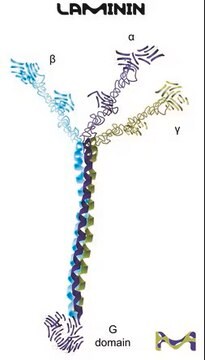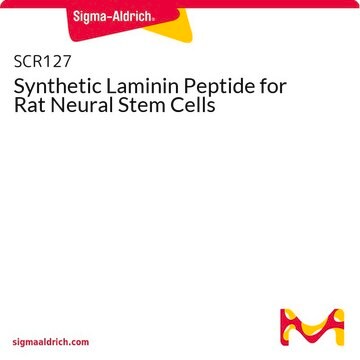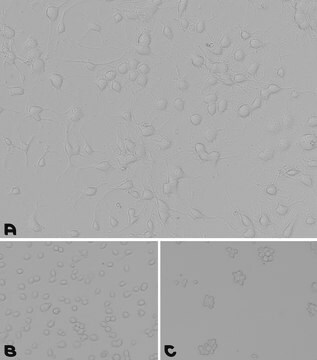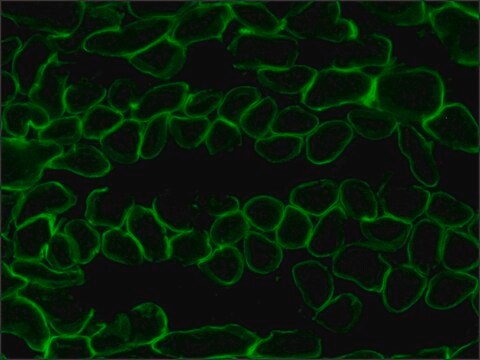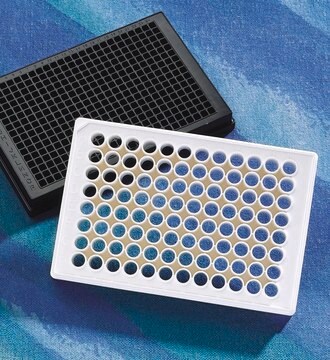127-2.5
Poly-D-Lysine & Laminin (2.5 ML)
Synonym(s):
Collagen IV from human placenta
Sign Into View Organizational & Contract Pricing
All Photos(1)
About This Item
UNSPSC Code:
12352202
NACRES:
NA.75
Recommended Products
form
liquid
Quality Level
shelf life
1 yr
technique(s)
cell culture | mammalian: suitable
shipped in
wet ice
storage temp.
2-8°C
General description
Poly-D-Lysine (PDL) and Laminin solution is ideal for use in the coating protocol for cell culture surfaces. PDL Laminin coating is extensively used for neural cultures. It is known to enhance cell adhesion and cell maturation during in vitro cell culture. Poly-D-Lysine and Laminin solution is prepared in phosphate-buffered saline and sterile filtered. It is used to coat tissue culture ware to culture surface ratio of 0.25 ml/cm2. Tissue culture ware is coated at room temperature for one hour and carefully aspirate the solution. After wash two times with PBS, coated tissue culture ware may be used immediately or air-dried and stored at 4oC for up to one week.
Application
Poly-D-Lysine & Laminin (2.5 ML) has been used in vitro as inductive agents to stimulate Y79 cells to express both neuronal and glial characteristics.It has been used to coat culture plates for retinal ganglion cell culture.
Storage Class Code
10 - Combustible liquids
WGK
WGK 3
Flash Point(F)
Not applicable
Flash Point(C)
Not applicable
Choose from one of the most recent versions:
Certificates of Analysis (COA)
Lot/Batch Number
Sorry, we don't have COAs for this product available online at this time.
If you need assistance, please contact Customer Support.
Already Own This Product?
Find documentation for the products that you have recently purchased in the Document Library.
Customers Also Viewed
J Tombran-Tink et al.
Investigative ophthalmology & visual science, 30(8), 1700-1707 (1989-08-01)
Tumor cells can be induced to differentiate in vitro by biochemical manipulation of their culture environment. In the studies described here, the effects of medium conditioned by human retinal pigmented epithelial (RPE) cells on Y79 human retinoblastoma cells have been
Jing-Wen Yu et al.
Journal of molecular neuroscience : MN, 60(4), 486-497 (2016-08-31)
Bone marrow-derived mesenchymal stem cells (MSCs) are the ideal transplanted cells of cellular therapy for promoting neuroprotection and neurorestoration. However, the optimization of transplanted cells and the improvement of microenvironment around implanted cells are still two critical challenges for enhancing
Our team of scientists has experience in all areas of research including Life Science, Material Science, Chemical Synthesis, Chromatography, Analytical and many others.
Contact Technical Service


